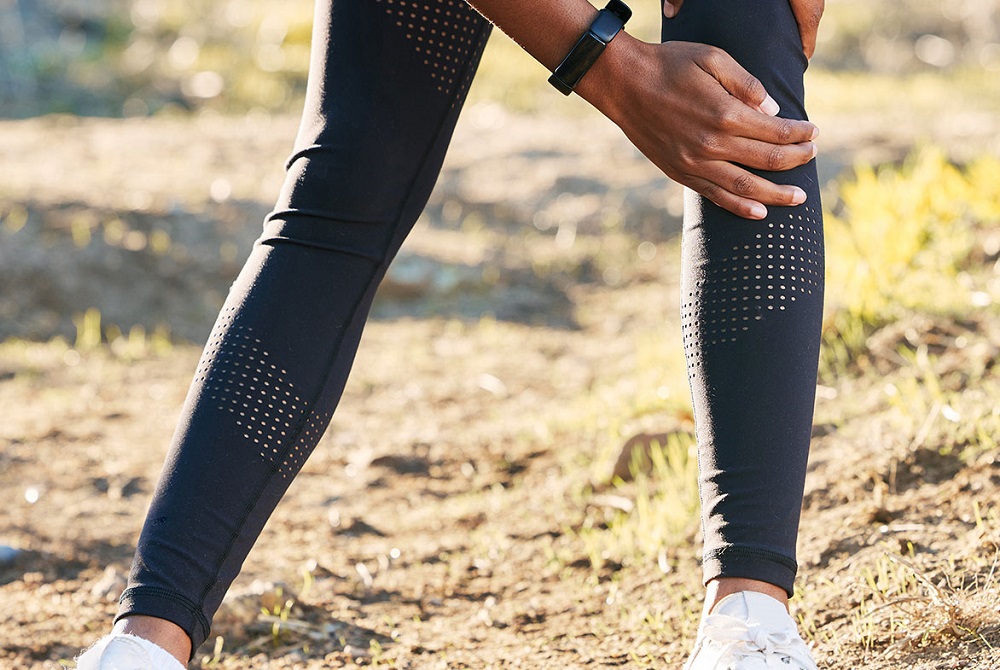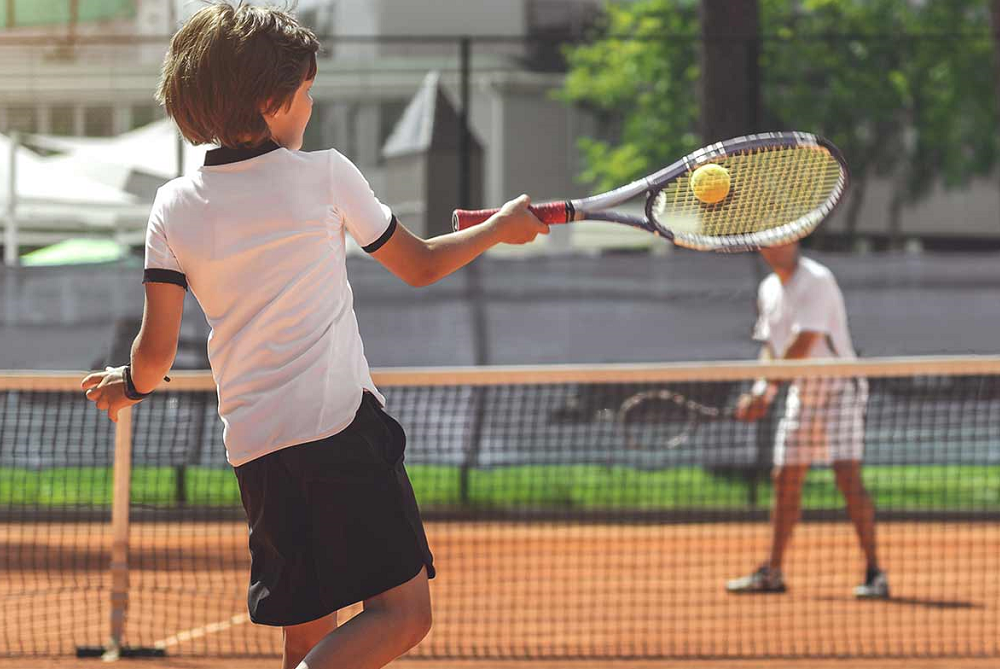
When Can I Walk Off Knee Pain — And When Should I See A Doctor?
June 7, 2022
Whether you wake up with a stiff knee, sustain an injury, or start feeling knee pain for seemingly no good reason, you might wonder what to do. Should you immediately rush off to the doctor? Can you just ignore it and hope it will get better? Can you treat it yourself? Knowing when you need a doctor’s intervention can be a tricky decision to make.
We see people at the start of injuries and after they’ve been ongoing,” says Nancy White, M.D., a sports medicine physician at Henry Ford Health. “While the sooner you see an expert, the better, there’s really no right or wrong to it. However, there are a few key signs that it’s a good idea to get it checked out.”
Dr. White recommends seeing a doctor if:
► You are waking up with consistent knee stiffness. If there’s no history of an injury involved, it could be due to osteoarthritis or rheumatoid arthritis.
► If your knee pain isn’t going away.
► Your knee is swollen and you can’t bear weight on it.
► You can’t fully flex or extend your knee.
► Your knee is warm to the touch. This could signal inflammation.
If your pain is mild — or you’re trying to decide whether to see someone — Dr. White recommends icing it on a scheduled basis. “That means two to three times a day,” she says. “Apply the ice to your knee. It will get cold. It will burn, then it will get numb. Remove the ice when it gets to the numb stage.”
She also recommends elevating your leg and putting a compression wrap or sleeve on your knee. If the pain is bad, you can try taking ibuprofen or naproxen for a few days.
Common Causes of Knee Pain
But if your knee is not getting better, it’s a good idea to see a doctor, as common causes of knee pain include:
► ACL sprains and tears. Short for anterior cruciate ligament, the ACL is one of four ligaments in the knee that allows it to flex and extend. The ACL can tear when your foot is firmly planted in place, and the knee locks and twists or pivots at the same time.
► MCL sprains and tears. Short for medial collateral ligament, the MCL connects your shinbone to your thighbone. It can tear when landing after a jump, or after an exterior blow to the knee (usually during contact sports). Luckily, most MCL injuries heal on their own.
► Meniscal tears. The menisci are your knee’s shock absorbers; they're two discs made of soft cartilage. Abrupt movements (like pivots, stops, turns, squats or lifts) can cause them to tear.
► Kneecap dislocation. A direct hit to the knee — or a sudden twist or pivoting of the leg — can make the kneecap can shift out of place.
► Patellar tendonitis. This is also known as Jumper’s Knee, as it’s a common injury in basketball and volleyball players. The patellar tendon connects the bottom of the kneecap to the top of the shinbone, and can become inflamed from overuse, excessive force or repetitive stress.
Knee bursitis. The bursa is a small, fluid-filled sac located near the knee joint. Knee bursitis occurs when the bursa becomes inflamed, often because of a knee injury or overuse from frequent kneeling.
How to Help Prevent Knee Pain
And if you want to help prevent knee pain in the future? “Exercise regularly so that you’re strengthening your quadriceps, hamstrings and gluteal muscles,” says Dr. White. “It’s also important to stretch to increase quadricep and hamstring flexibility.”
Wearing shoes with sturdy soles and proper arch support can also help ease pain and issues you may already have, says Dr. White. “I would say the top reasons people get into trouble with their knees are things they could prevent by changing lifestyle habits. This includes maintaining a healthy weight, as being overweight can also lead to increased wear and tear on the joints.
To learn more about your orthopedic condition or to find a provider, visit henryford.com/ortho.
Dr. Nancy White is a sports medicine physician at Henry Ford Health. She sees patients at Henry Ford Medical Center – Novi, and Henry Ford Medical Center — Bloomfield Township.

Can A Sports Physical Replace A Wellness Exam?
August 8, 2023
Before your child can take the field or hit the courts, their doctor must give the all-clear for them to play.
 Since the sports physical is a pre-requisite to organized activity, you may be tempted to skip your child’s annual well-visit. After all, do you really need to go to the doctor’s office twice if they’re healthy enough to play sports?
Since the sports physical is a pre-requisite to organized activity, you may be tempted to skip your child’s annual well-visit. After all, do you really need to go to the doctor’s office twice if they’re healthy enough to play sports?
Of course, the answer is yes! Each type of visit to your pediatrician serves a different purpose, and one cannot replace the other.
Shoshana Gordon, D.O., a pediatrician for Henry Ford Health, explains the differences between the sports physical and regular wellness examination.
What Happens at a Wellness Exam
An annual wellness exam is a comprehensive visit that allows your child’s pediatrician to monitor all aspects of your child’s development. These appointments can vary quite a bit, depending on your child’s age.
“Your child grows so much early in life that we need to see them several times before their first birthday,” says Dr. Gordon. “As they get older, the conversations at these appointments evolve and expand to include topics like mental health and what to expect from puberty.”
Generally, many aspects of your child’s wellness exam will stay the same over time. Regardless of age, this appointment will include:
- Checking vitals (heart rate, blood pressure)
- A physical exam (to monitor physical growth)
- Discussing developmental milestones
- Developmental and emotional/behavioral screenings
- Conversations about nutrition and any physical activities your child is involved in
- Conversations about how your child is getting on at school
- An opportunity to discuss questions or concerns you or your child may have
One crucial part of the wellness exam is immunization. This appointment is the best time for you to talk with your child’s pediatrician to make sure that your child is up to date on necessary vaccines.
Additionally, wellness exams are the best way for you and your child to develop a relationship with their pediatrician. When you only take your child to the doctor when they are sick, it is harder for your pediatrician to set a baseline for their health.
“Regular wellness visits allow you and your child to get comfortable with asking your doctor questions,” says Dr. Gordon. “Once we develop a good patient-provider relationship, your child’s pediatrician will have an easier time recognizing when your child isn’t feeling like themselves and can better offer alternate approaches to care that best suit your child’s unique needs."
What Happens at a Sports Physical
Sports physicals are used to determine if your child is healthy enough to participate in organized sports. During this appointment, your child’s doctor will screen them for different sports-specific health concerns. They will be evaluating several things including:
- Heart function
- Lung function
- Mobility
- Reflexes
- Endurance
“During a sports physical, we’ll look at both your child’s and your family’s health history to make sure there aren’t any indicators that could impact your child’s ability to play,” says Dr. Gordon. “For example, if your child had COVID or if you have a family history of cardiovascular complications, additional tests may be necessary to make sure this isn’t affecting your child’s health.”
The biggest difference from a wellness exam? Sports physicals don’t include developmental screeners that are essential to your child’s growth.
“At the end of the day, a sports physical cannot take the place of your child’s annual wellness exam,” says Dr. Gordon. “However, when you go for your child’s wellness exam, talk to your child’s pediatrician about including a sports physical as part of the appointment.”
In addition to the developmental, social and emotional evaluations that take place at your child’s annual wellness exam, this is the best time for you and your child to get to know your pediatrician. Establishing yourself with your child’s doctor will make it easier to treat and care for your child as they continue to grow.
To find a pediatrician or make an appointment online, visit henryford.com or call 1-800-436-7936.
Dr. Shoshana Gordon is a pediatrician who sees patients at Henry Ford Medical Center-Royal Oak and Henry Ford Medical Center-Sterling Heights.


